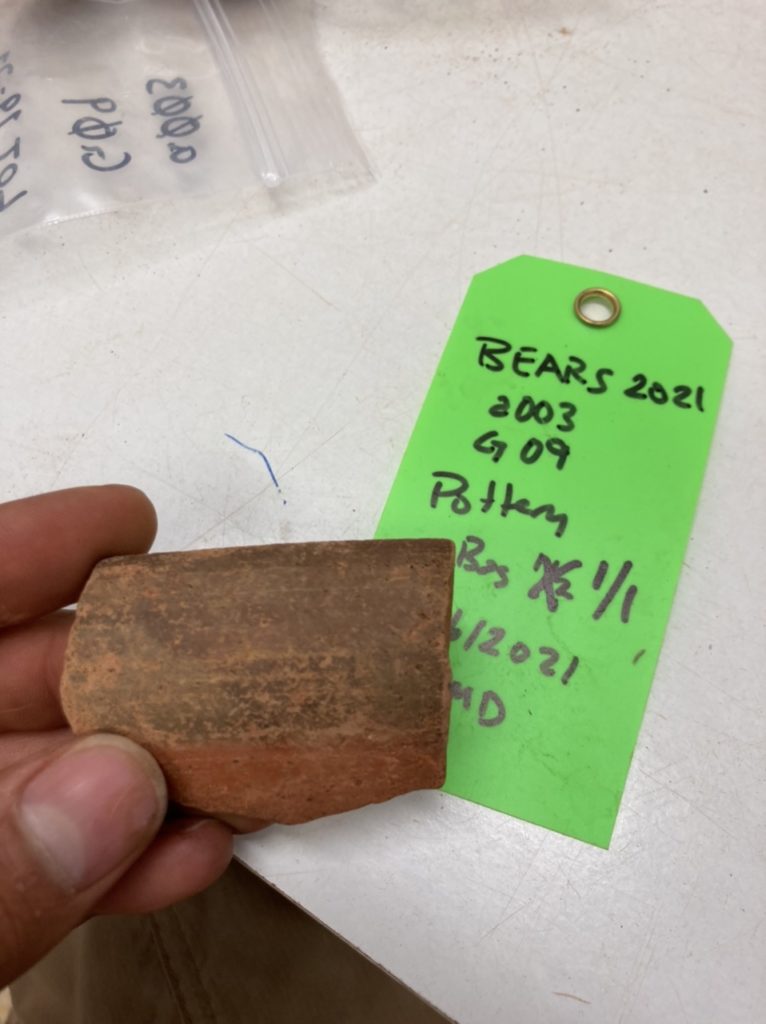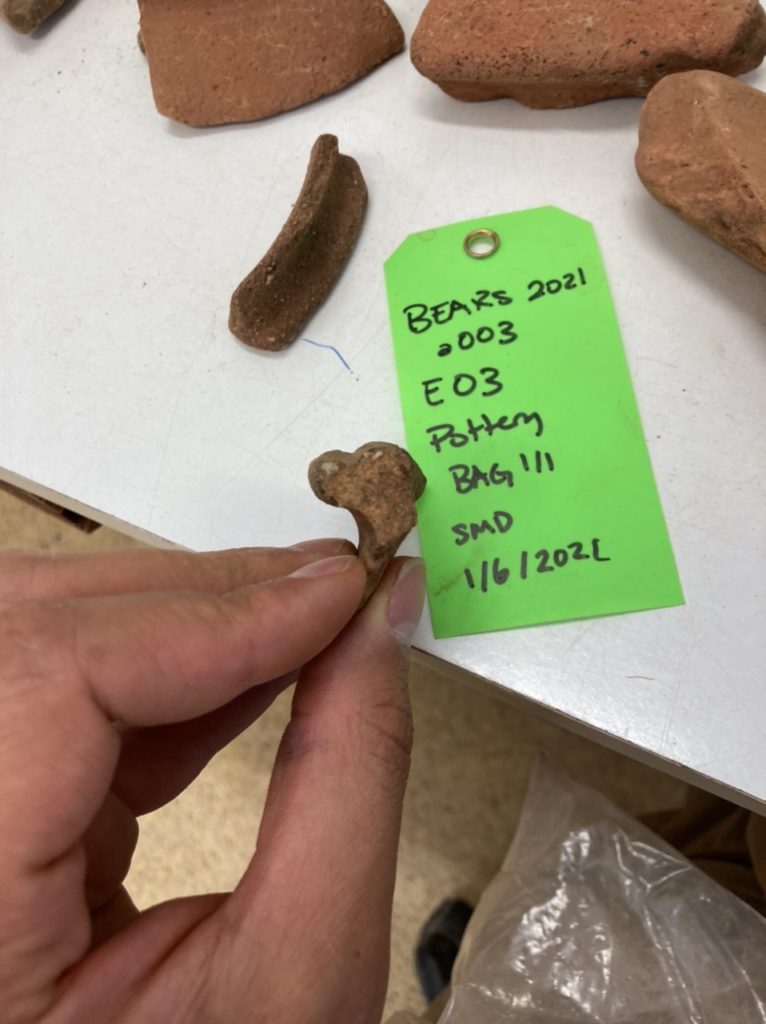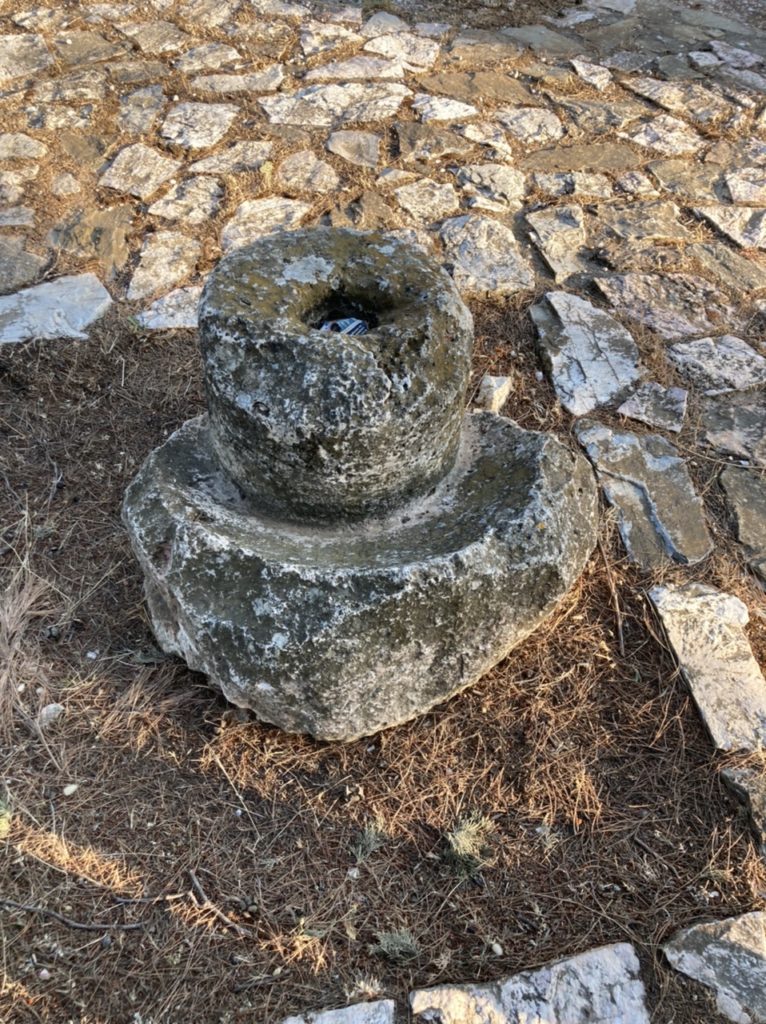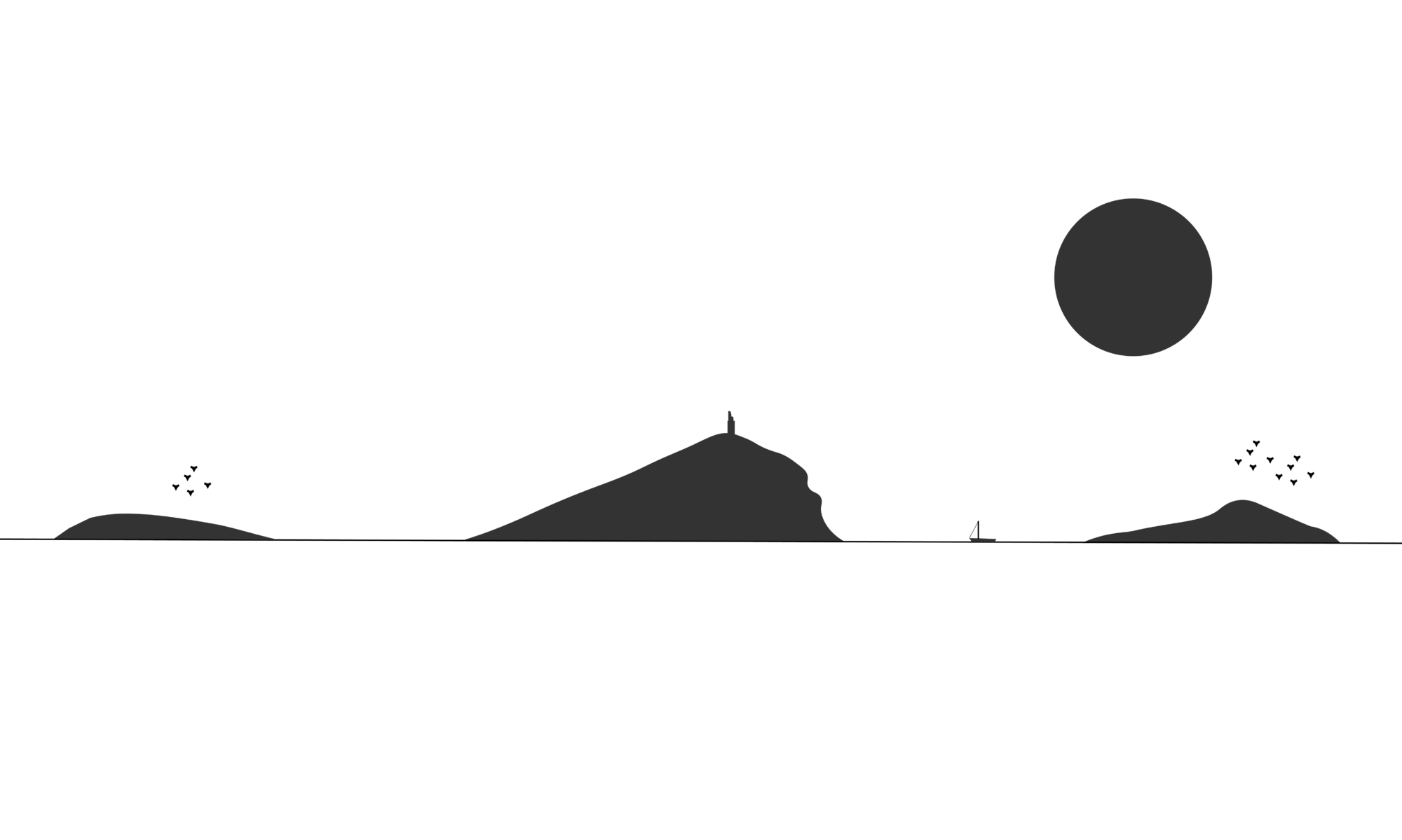Since the 2019 field season, BEARS has uncovered significant evidence of Roman period activity in and around the Porto Rafti bay (the Roman period in Greece is typically defined as the 1st BCE – 7th CE). This evidence includes parts of the good old marble statue on Raftis, but also, and maybe more tantalizing, a diverse assemblage of ceramic and non-ceramic artifacts from the many islands located in the bay. During the 2022 season, the team collected even more Roman period artifacts and had the opportunity to closely study those collected in the 2019 and 2021 seasons. By way of a preliminary sketch, here are some of our findings.
1) The Roman assemblage on Praso seems to date from the 4th-7th century CE. This coincides with Roman period settlement previously recovered by archaeologists elsewhere in Porto Rafti. By contrast, the Roman assemblage from Raftis is more circumscribed, dating only to the 6th and 7th centuries CE. This suggests that activity on Praso and Raftis were contemporaneous, but leaves open the question of why activity on Raftis only began in the 6th and 7th centuries CE.

2) The Roman assemblage on Praso appears to be more functionally diverse than the assemblage on Raftis. For example, the Praso assemblage includes significant quantities of cooking vessels (e.g., frying pans and stew pots), an artifact category that has not been recovered from Raftis. This suggests that Praso and Raftis may have been sites of different types of ancient activity, with Praso likely being a place of permanent or semi-permanent habitation.

3) The Town survey has collected several clusters of Late Roman material (4th-7th CE). These clusters of material suggest the existence of Late Roman habitation, possibly related to agricultural production, in the bay’s hinterland. This corresponds and adds to evidence recovered from the Mesogeia during rescue excavations for the construction of the Athens International Airport. The Town survey also recovered several artifacts that seem to date to the Early Roman period (1st BCE-2nd CE), including fine ware imported from Turkey. This is the only firm evidence that BEARS has recovered of Early Roman activity in the bay of Porto Rafti.

In the coming years, these findings will be expanded and refined. There is still much work to be completed in studying the Roman material collected from BEARS, an exciting and daunting endeavor!
